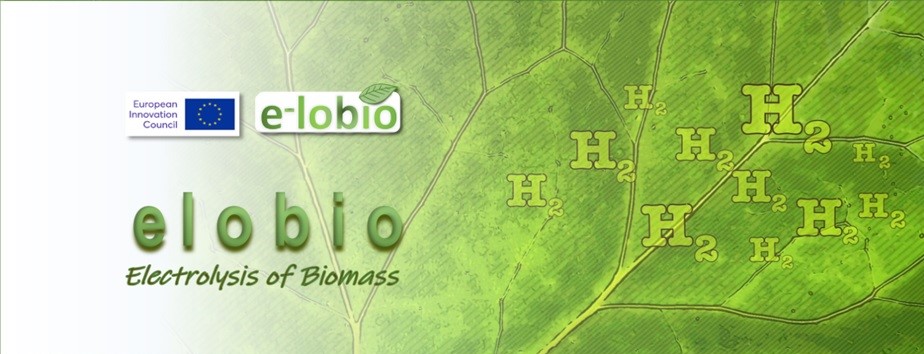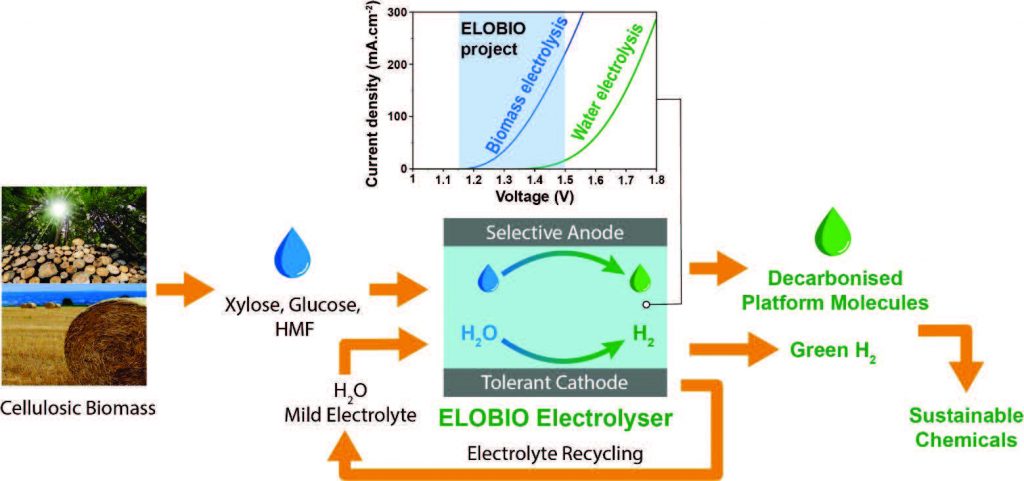
ELOBIO is a European project granted by the EIC Pathfinder programme (3,998 M€ over 4 years, 2023-2026) that supports research teams to research and develop emerging breakthrough technologies. Since the beginning of the EIC adventure in 2021, the Pathfinder programme has launched several open and challenge-driven funding calls leading to the signature of its 100th grant in Horizon Europe with project ELOBIO (ELectrOlysis of BIOmass). The project has been funded under the EIC Pathfinder Challenge call closed on 27 October 2021, under the Challenge on ‘Novel routes to green hydrogen production’. This challenge will be contributing to reaching the objectives of the European Green Deal policy, the EU roadmap for making the EU’s economy sustainable, and making Europe climate-neutral by 2050.
ELOBIO was selected among 403 eligible proposals submitted under the 2021 EIC Pathfinder call for cutting-edge research projects to achieve breakthroughs in strategic areas.
ELOBIO consortium:
- Institut de Recherches sur la Catalyse et l’Environnement de Lyon
- Institute for Applied Materials – Electrochemical Technologies (IAM ET)
- Universidad of Castilla-La Mancha, Department of Chemical Engineering
- Universidad Politécnica de Madrid (UPM)
- Dutch Institute for Fundamental Energy Research
- Laboratoire de Chimie de l’ENS de Lyon
- Institute for Technology Assessment and Systems Analysis (ITAS)
- Institut de Chimie des Milieux et Matériaux de Poitiers, University of Poitiers (UP)
- Fraunhofer Institute for Chemical Technology (ICT)
ELOBIO targets the large-scale production of green hydrogen from renewable cellulosic biomass, fully integrated into biorefineries with a circular bio-economy approach from the biomass supplier up to the final bio-products and green hydrogen.

ELOBIO aims at advancing biomass electrolysis as a novel technological means of green hydrogen production. The project will design, build up, test, and improve a lab-scale prototype electrolysis cell at Technology Readiness Level 4, involving a selective electrocatalytic cathode for the hydrogen evolution reaction and an electrocatalytic anode capable of selectively oxidizing biomass-derived compounds. In addition, considering that several emerging technologies rely on electrolysis assisted with an additional renewable source of energy, the concept of electrochemical promotion of catalysis, sonoelectrolysis, and magnetoelectrolysis will be explored for further enhance the energy efficiency of green hydrogen electrolytic production.

